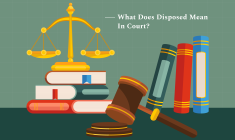If you have been frantically trying to understand how to use personal loan, trust me you are not alone!
A personal loan can be a helpful credit option to consider if you have a large expense. These can be a smart choice as they allow you to spread the cost of your purchase or expense over a longer period.
With longer loan periods, you can make repayments comfortably by planning for them in advance. This helps you afford loan costs without compromising your finances or hurting your credit score.
However, like any other credit option, personal loans also come with their share of pros and cons that need consideration.
While they’re certainly advantageous over a few other credit options, you need to steer clear of common pitfalls that can weaken you financially.
In this article, I will talk about the best ways in which you can make the most of your personal loan. Apart from that, I will also talk about the mistakes that you MUST avoid (literally at all cost.)
So, if these are some of the things that you want to know about, keep on reading this blog till the end…
How to Use Personal Loan?
Taking a loan is fine. But not being able to understand exactly how you can use your personal loan efficient is a mistake that you don’t want to make!
So, here are a few things that you must know:
1. Cover Urgent Expenses
If you’ve been budgeting to manage your finances and have set aside a few pounds for an emergency fund, you’ll have no trouble navigating an emergency.
However, if you’re one of those who don’t have enough savings or a backup fund to manage urgent expenses, a salad personal loan could come in handy.
Whether this is a car breakdown or a broken boiler, a personal loan can give you quick access to funds.
Plus, with fixed monthly payments, you can adjust your budget to plan for these repayments. This can help you manage your urgent expenses more efficiently.
2. Debt Consolidation
Financial pundits often recommend debt consolidation to ease your financial stress. This simply means taking out a loan to pay off high-interest debts or multiple debts.
Doing this combines all your outstanding balances into one single monthly payment that simplifies your debt repayments.
So, if you’re juggling multiple debts, a personal loan might be a smart choice to manage your debts better.
With a debt consolidation loan, you could be looking at one single due date instead of several, helping you stay organised with your debt repayment schedule.
Additionally, this can help you become debt-free faster, freeing up your finances considerably.
However, it’s a wise idea to check if you qualify for low interest rates on your loan for this to work.
3. Urgent Home Repairs
Essential home repairs can be expensive affairs. A personal loan can effectively manage these expenses without you having to dip into your emergency savings. These loans can cater to a wide range of funding needs, be it £1000 or £10000.
This makes it a flexible loan option where you can borrow exactly what you need for your home improvement project.
Since personal loans are unsecured, there’s no need for collateral. They’re also disbursed quickly, with minimal waiting time to access funds, meaning you don’t have to put your home repairs on hold.
Mistakes to Avoid While Taking a Personal Loan
Now that you know how to use personal loan, you should also check this out.
You see, we all know that people only apply for loans when they are literally in dire need. But, there are certain mistakes that can really cost you a lot.
“What are these?”
Here are the ones that you need to know about:
1. Not Reading the Fine Print
Loan documents are often overlooked because of the legal jargon involved. While these inconspicuous pages filled with terms and conditions may seem boring, reading them thoroughly can save you from unexpected costs.
These terms and conditions involve APR rates, hidden fees, penalties, and whether your repayments are flexible.
It’s wise to examine the fine print of your loan document and assess these terms and conditions. This way, you know what you’re signing up for and won’t be caught up in any additional loan costs.
Being aware of your loan agreement’s details can allow you to clear up any doubts or ambiguous terms or conditions with your lender. Doing this can help ensure you’re receiving a fair deal with your loan.
2. Borrowing More than You Need
Personal loans are one of the most inclusive and easily accessible credit options on the market. This can make it tempting to borrow more than you actually need.
While your lender may approve the larger amount, it’s unwise to borrow extra for non-essential expenses. This is because you end up paying more interest for every extra pound borrowed.
Instead, consider borrowing only what you need and practising financial prudence. This can save you from running up your loan costs unnecessarily, which can end up increasing your financial stress.
You end up paying more on your monthly repayments while potentially increasing the total cost of your loan over the loan period.
By borrowing only what you require and sticking to your loan repayment plans, you minimise your debt risk and can manage your finances better.
Your Legal Guide: Is Personal Loan a Good Idea?
If you are about to take out a personal loan, it is the right time to figure out whether there are other ways cheaper to borrow the money.
Some instances when it is right to take a personal loan, are as follows:
- You can’t have a low-interest credit card or you don’t qualify for it.
- Your credit cards’ credit limits are not enough to meet your current borrowing needs.
- A personal loan is the cheapest way to borrow money for you.
- You have no collateral to provide with.
Your reason for taking a personal loan from a lender may be that the loan you need is for a short and very specific purpose.
If that is the case, trying to get a personal loan is not only the best but also the only possible solution. The terms of personal loans normally range from 12 to 60 months.
For instance, you’ve got a substantial sum to be released two years ahead. However, lack of adequate cash flow would be the main problem in the meantime;
Therefore, in that case, a two-year personal loan is there to fill up the gap. Which means, that’s a good idea!
In conclusion, personal loans, when used responsibly, can be an effective way to manage everything from a large purchase to consolidating debts and unexpected emergencies.
While they’re far more useful than being a temporary fix, it’s important to steer clear of potential pitfalls which can hamper your financial future.
I hope this article has helped you understand the nuances of personal loans and how they can be used smartly to manage your finances.
Read Also:
















